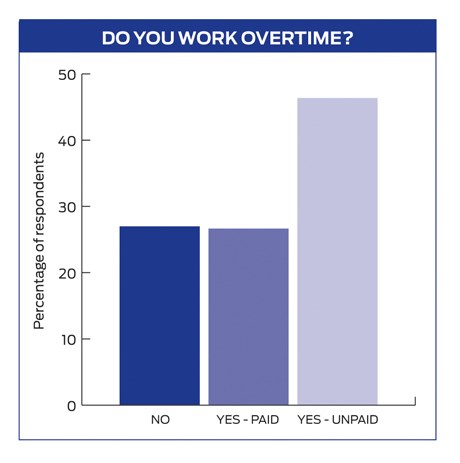Unpaid overtime props up sector
Monday, November 16, 2015
Nurseries are relying on the ‘goodwill’ of staff to work unpaid overtime, according to a new survey by the education professionals’ union Voice.

Of the 335 early years and childcare staff who responded to the survey, close to half (46 per cent) said that they regularly work more than their contracted hours for free. Just 27 per cent get paid to work overtime.
A number of respondents also revealed that they are often unable to leave the setting, even during their breaks, due to staffing ratios.
Voice says that the findings demonstrate how the ‘goodwill’ of a highly committed workforce is being exploited to provide cover for longer opening hours. It raises concern about how far this ‘goodwill’ will be stretched when the 30 hours of free childcare is introduced in England.

Deborah Lawson, general secretary of Voice, said, ‘It will be interesting to see how far this goodwill is stretched once the free childcare scheme in England is expanded to 30 hours, putting further pressure on providers and their staff.’
According to Jacqui Mann, director of HR 4 Nurseries, whether employees get paid for overtime is dependent on the terms and conditions of their contract.
She said, ‘It depends what is included in an employee’s contract as to whether or not they get paid for overtime or receive time off in lieu. Many people who are paid a salary, so not paid hourly, don’t get paid overtime, which is normal practice.’
The survey, which was open to Voice members and their colleagues working in private, independent and local authority settings across England, Scotland, Wales and Northern Ireland, also suggests older staff are more likely to have higher qualifications.
The majority of the survey respondents were aged 41-50 and qualified above a Level 3. These staff were also more likely to be earning a better wage than younger practitioners with fewer qualifications and less experience.
Twenty-five per cent of the 295 respondents who gave information on their gross salary said they earn more than £20,000 a year.
Fifty-five per cent are on salaries of between £10,000 and £20,000 a year, 15 per cent earn between £5,000 and £9,999, and 4 per cent less earn than £5,000 (figures do not add up to 100 per cent, because percentages have been rounded up or down).

Voice has raised concerns that if the childcare sector goes the same way as the primary and secondary workforce, where older staff are leaving the profession early, there will be fewer experienced and qualified early years practitioners.
Ms Lawson said, ‘The implications of respondents’ age profile are concerning. Implementing robust long-term recruitment and retention strategies now is essential to address these succession issues and the sustainability of both the profession and provision.’
While the majority of respondents (71 per cent) were in full-time work, 5 per cent reported not having regular contracts or predictable hours– of these, 2 per cent are on zero hours contracts.
Despite it being a legal requirement, five-per-cent said they did not receive pay or wage slips. Ms Mann said, ‘If employees don’t receive a payslip, this is a legal issue. Payslips must show earnings before and after any deductions, explain any deductions and show how the wage is paid. Employees should keep payslips for as long as possible as proof of earnings, tax paid and pension contributions.
She added, ‘All employees should legally be given a written statement of their terms and conditions within eight weeks of starting employment. Some nurseries don’t offer regular hours and these staff are usually on a zero hours or casual contract. With this type of contract, there is no guarantee what hours they will work each week or if they will be offered any hours. I think many nurseries find this fits for their business, as they can call in people on these contracts when they need extra staff to comply with ratios.’
Voice is now calling for the work of childcare professionals in the UK to be recognised and rewarded with appropriate investment, coherent pay and career structures, which it argues would raise the status of the sector and profession.
Ms Lawson added, ‘Childcare’s greatest challenge is recruiting and retaining staff in a sector that, because of decades of underfunding, offers skilled and experienced professionals low wages, poor career prospects and dwindling training budgets. This does not make childcare an attractive career option.’




